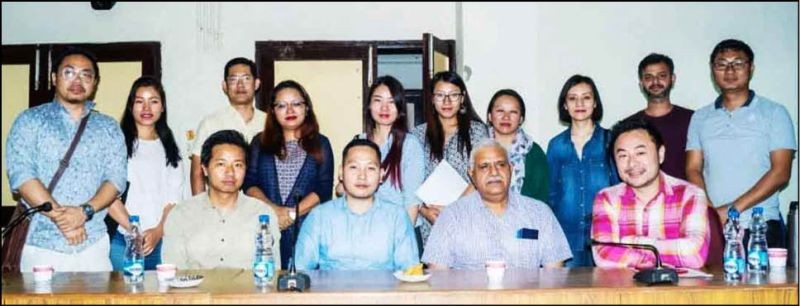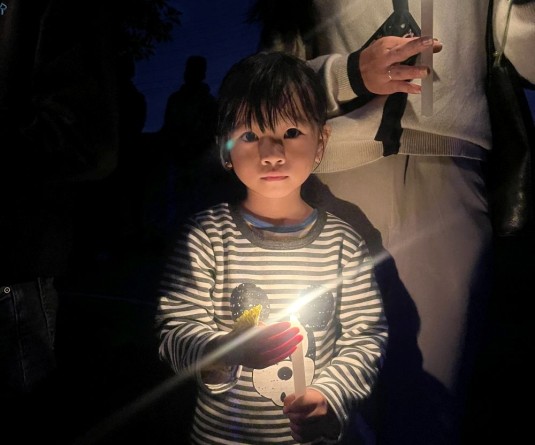Participants and presenters at the NSA Research Scholars Colloquium’ on March 29. (Photo Courtesy: NSA)

New Delhi, March 31 (MExN): The Naga Scholars’ Association (NSA) organized a national level ‘Research Scholars Colloquium’ in School of International Studies (SIS), JNU, New Delhi on March 29. The programme was chaired by eminent political scientist Professor Jagpal Singh from IGNOU who has a specialization on democracy and development, identity and politics, politics and recognition and rural politics.
The first speaker Chibenthung Yanthan, PhD Scholar, JNU spoke on “Understanding Russia’s Sovereign Democracy as a Counter-Narrative to the Western Model of Liberal Democracy.”
The main purpose of this paper was to analyze some of the reasons why Russia feels the need to reject the Western model of democracy and put forward their own model, while examining the scope that Russia’s democratic model has in contributing towards the present discourse on democracy.
The way forward which the speaker put forward are that democracy is an ongoing process, so the question arises if sovereign democracy can be an alternative model of democracy, one that can add to ‘Institutional Innovation’, if sovereign democracy can be employed as a soft power model.
The second speaker Dr. Imtimangyang, Consultant, NUEP spoke on 'Incorporation of Christianity among the Ao Nagas: A case study of Molungkimong Village'. He stated that the underlying principle of Ao traditional belief did not come through impositions by outside forces or agents but came through organic development of perceived reality an outcome of post hoc-rationalization of their experience and interaction with the elements of nature.
He further stated that even though Christianity had a massive influence by giving a new cosmological vision and renewed imagination of the self and the society, the underlying principles of their animistic belief has a linear engagement throughout the process of incorporation and therefore the principles of animism are still a core constituent of their Christian belief today.
The third speaker Thejalhoukho, PhD Scholar, JNU spoke on 'Contested customs in the Naga Hills: Baptist reformers, salvage ethnography and Naga customary Law'. Thejalhoukho analyzed the contestations between two different discourses on ‘Tribal’ customs during the late 19th and early 20th century in the colonial Naga Hills District.
Thejalhoukho examined three particular customs i.e. mithun sacrifice, aksü and genna which were contested between the new converts to Baptist Christianity and those who adhered to the traditional religion and the opposing discourses they generated between the missionaries and the ethnographers.
He also stated that the Naga nationalist movement in the post-colonial period incorporated both the romanticism of the ethnographers and the enlightening discourse of Baptist Christianity to fashion a Naga national identity and there is a tendency to ignore the conflicting history between the missionary and the ethnographer.
The colloquium was followed by further discussions and suggestions from the participants and the concluding remarks from the Chair.




